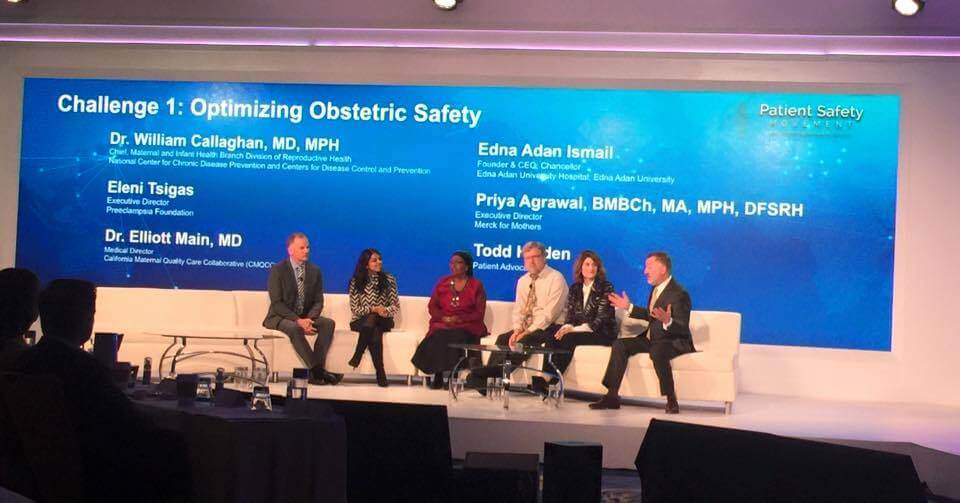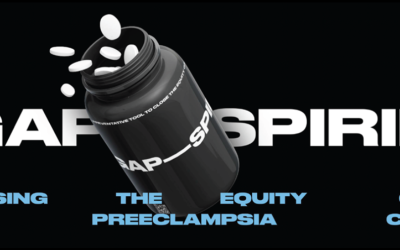
best practices
Last Updated on January 24, 2025
CARE PROVIDERS
There's an ongoing need to spread awareness and improve understanding of preeclampsia, even within the medical community. Our goal is to provide resources for patients and their caregivers to ensure all women receive timely diagnosis and appropriate treatment. As part of our ongoing commitment to patient and provider education, we participate in national and state quality care collaboratives and other practice improvement initiatives to reduce maternal and infant death and disability due to preeclampsia and related hypertensive disorders of pregnancy.
Consensus Bundle on Severe Hypertension During Pregnancy and the Postpartum Period
Complications arising from hypertensive disorders of pregnancy are among the leading causes of preventable severe maternal morbidity and mortality. Timely and appropriate treatment has the potential to significantly reduce hypertension-related complications. To assist healthcare providers in achieving this goal, this patient safety bundle provides guidance to coordinate and standardize the care provided to women with severe hypertension during pregnancy and the postpartum period. This is one of several patient safety bundles developed by multidisciplinary work groups of the National Partnership for Maternal Safety under the guidance of the Council on Patient Safety in Women's Health Care. These safety bundles outline critical clinical practices that should be implemented in every maternity care setting. Similar to other bundles that have been developed and promoted by the Partnership, the hypertension safety bundle is organized into four domains: Readiness, Recognition and Prevention, Response, and Reporting and Systems Learning. Although the bundle components may be adapted to meet the resources available in individual facilities, standardization within an institution is strongly encouraged. This commentary provides information to assist with bundle implementation.
Read and download the hypertension safety bundle
Obstetric Safety Takes Center Stage
Preeclampsia Foundation Executive Director Eleni Tsigas (second from right) was honored to continute patient-centered strategies to improve obstetric outcomes at the 2016 Patient Safety Movement's World Patient Safety, Science & Technology Summit. Eleni joined speakers from Merck for Mothers, the California Maternal Quality Care Collaborative, Edna Adan Hospital Foundation, and the Centers for Disease Control as they highlighted ways we can prevent maternal and infant mortality. Patient advocate Todd Heiden shared the story of how his wife died from postpartum preeclampsia to highlight the real-life impact of this issue.
There were two key takeaways from the Optimizing Obstetric Safety panel discussion. First, healthcare systems and hospitals need to provide preeclampsia patient education to all expectant and new mothers. And we've got just what the doctor ordered! Click here to place your order for our educational Illustrated Signs & Symptoms Pads. Second, healthcare systems and hospitals are strongly encouraged to adopt and deploy maternal safety bundles that provide best practices for quality improvement. Find more information on those bundles, including one for Hypertension in Pregnancy, available through the Alliance for Innovation on Maternal Health here.
Educating Patients
Less than half of well-educated women know the signs and symptoms of preeclampsia. And still others may not share their symptoms with their healthcare providers for fear of over-reacting.
The Preeclampsia Foundation is working to improve the resources available to all women and their caregivers by providing evidence based educational materials in our Store. We also encourage providers to recommend the trustworthy information on our website to all their patients
Access our patient education resourcesAcurate Blood Pressure Readings
We know, it seems too simple, but women contiue to report that their healthcare providers don't accurately take their blood pressure. We hear often that patients were spoken with during their measurement, their legs were crossed, or after a high reading, their blood pressure wasn't measured again, after rest, to confirm accuracy. It is important that healthcare providers are continually reminded and tested on accurate blood pressure measurment.
Learn more about taking blood pressure the right wayHere's an entertaining video on how to measure blood pressure
Low-Dose Aspirin
Low-dose aspirin is recomended to delay or prevent the onset of preeclampsia for women with certain risk factors.
See the current guidelinesEducating Providers
We help provide medical professionals across the globe with useful resources to aid them in the diagnosis and management of preeclampsia and other hypertensive disorders of pregnancy. Please explore the practice guidelines, published literature, and materials we have available on this page and share them with your colleagues and patients.
We are also available to speak at Grand Rounds, clinical meetings, and community events where the patient's unique perspective and our expertise in patient education are needed.
Learn more about managing preeclampsia and eclampsiaRelated Articles

Nurses play a vital role in detecting preeclampsia and caring for patient before, during, and beyond pregnancy.

A key component needed in the fight against preeclampsia is the development of tests for simple, rapid, and accurate diagnosis and prediction through the development and adoption of biomarkers.

As a first step to address the need for self-monitored blood pressure, the Preeclampsia Foundation started providing the Cuff Kit® in June 2020 to women at highest risk of developing preeclampsia and...

Every woman should be able to check her own blood pressure at home.

Order our Ask About Aspirin Rack Card. Aspirin can prevent the formation of blood clots. This can make aspirin useful in treating or preventing some conditions like heart attacks and st...

For more on the Preeclampsia Foundation's work to amplify all research related to biomarkers for improved prediction and diagnostic tools, please visit https://preeclampsia.org/biomarkers. INDIANAPOL...

GAP—SPIRIN campaign gets low-dose aspirin to those most at risk to help close the maternal health gap in preeclampsia ________ NEW YORK, January 23, 2025/PRNewswire/ – In recognition of...
1732072344.png)
While the Preeclampsia Foundation has been championing patient advocacy and representation for all families affected by hypertension in pregnancy throughout our 25 year history, we recognized the uniq...

Washington, DC – April 11, 2024 – On April 10, one day before the start of Black Maternal Health Week, the Preeclampsia Foundation in partnership with Thermo Fisher Diagnostics held a Hill...

Recently, I came across a social media post calling attention to the global maternal health crisis from a Black woman’s perspective. Someone responded to the post asking, “What’s rac...
